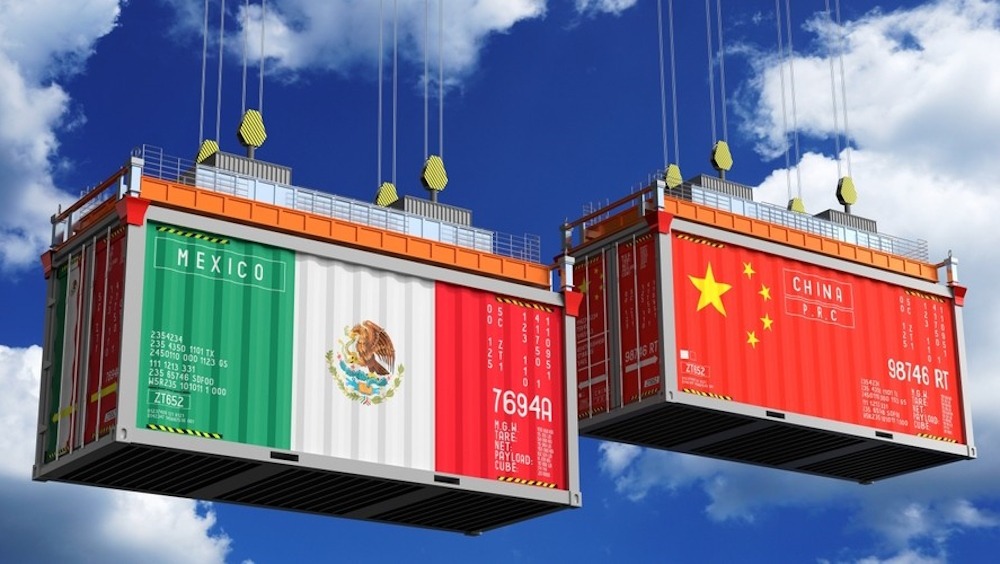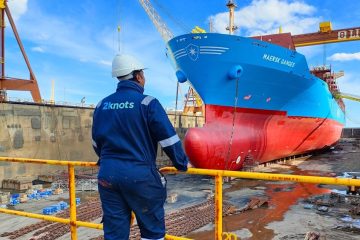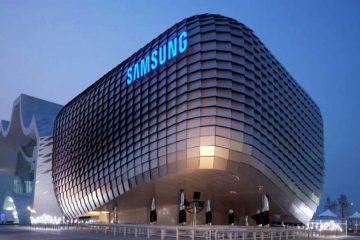China’s move to Mexico to avoid tariffs is failing

Chinese firms have maintained a steady supply of goods to the United States by utilizing manufacturing facilities in Mexico, allowing products to be shipped to the U.S. without tariffs, thanks to the provisions of the U.S.-Mexico-Canada Agreement negotiated during Trump’s initial term. Chinese enterprises have allocated substantial financial resources into numerous manufacturing facilities across Mexico, producing components for the automotive sector, electronics, household appliances, furniture, medical devices, and various other goods intended for the American market. In a development that may not align with Trump’s expectations, the U.S. trade deficit with Mexico has expanded significantly, reaching approximately $172 billion last year, up from around $78 billion in 2018. The current administration seeks to address what it perceives as a significant loophole in the trade agreement established with the nation’s nearest neighbors.
Trump has consistently highlighted the connections between Mexico’s automotive sector and Chinese manufacturers. American automotive manufacturers source over 40% of their components from Mexico, with a significant portion originating from factories owned by Chinese entities. The Trump administration is currently deliberating on the imposition of additional tariffs, following the existing 25% tariffs on all imports of steel and aluminum, as well as a forthcoming 25% tariff on foreign cars set to take effect this week. Potential options include establishing specific rates for individual U.S. trading partners or implementing a more generalized tariff that would impact nearly all countries. Disentangling essential components of the global supply chain will incur significant costs and present considerable challenges for all stakeholders, ranging from producers to end-users. Experts assert that the Chinese-Mexican linkage to the U.S. market will persist as long as the existing trade agreement remains in effect.
Jilian Engineering, a construction firm located in Shenzhen, facilitated the establishment of Chinese manufacturing facilities just south of the U.S.-Mexico border. This development is a direct consequence of the business surge initiated in 2018 by President Trump’s initial imposition of tariffs on Chinese imports. Su indicated that his company, Jilian Engineering, is capable of constructing a small factory in Mexico within a timeframe of just seven months. Hofusan, a recently established industrial park in Mexico, occupies the site of a former cattle ranch located approximately 125 miles south of the United States border. Over 20 Chinese manufacturing firms occupy an area more than double the size of New York’s Central Park, collectively reflecting an investment of $1.5 billion since the inception of Hofusan in 2018.
Vivid crimson Flags of the People’s Republic of China are displayed alongside those of the United States and Mexico at the entrances of manufacturing facilities within the industrial complex, characterized by broad boulevards linking the various factories. “The anticipated influx of an additional 20 companies over the next two years is projected to bring an estimated investment of $500 million,” stated Cesar Santos, chairman of Hofusan. He previously engaged in livestock farming alongside his father on the land, which remains interspersed with yucca trees. “A significant number of my clients express little concern regarding unilateral U.S. tariffs on Mexican imports, as they are aware that the products they manufacture are not accessible through alternative sources,” stated Santos. “The likelihood of increased costs is plausible.”
The Santos family holds a 20% equity interest in Hofusan. The industrial park engages in leasing facilities or selling land to Chinese manufacturing companies seeking to establish operations in northern Mexico. Holley Group of China, a key player in the management of industrial parks, holds an 80% ownership interest in the complex.
Cesar Santos, the chairman of the Hofusan industrial park, oversees the remnants of an old ranch building located at Hofusan.
According to a research note from analysts at JP Morgan, the tariffs currently proposed on Mexico and Canada are projected to increase the average cost per vehicle by $3,125. Jim Farley, the chief executive of Ford Motor, indicated during a February earnings call that the implementation of all proposed tariffs by Trump would result in the erosion of billions of dollars in industry profits and negatively impact the U.S. job market over the long term.
Currently, only a limited number of U.S. auto suppliers are contemplating the relocation of production from Mexico back to the United States, according to Dan Sharkey, an attorney based in the Detroit area who represents supply companies. Such actions require a significant investment of time and, in light of the unpredictable nature of the Trump administration’s trade policies, would entail considerable risk, he noted. For almost all of his law firm’s approximately 90 clients, which include U.S. auto-parts companies operating in Mexico, a 25% tariff would effectively invert their profit margins, transforming what was once a profitable venture into a financially detrimental one, he stated.
“A significant portion of our clientele has experienced the 2008-2009 financial crisis, navigated the challenges posed by Covid, and emerged resilient. They are now expressing a firm stance against absorbing the costs associated with tariffs,” Sharkey stated. Ultimately, he indicated that the burden of tariffs is expected to be transferred to consumers. The initial tariffs imposed by the Trump administration affected a wide array of Chinese goods, encompassing everything from automotive components to dairy products. The tariffs were designed to enhance domestic manufacturing by increasing the expense of imported goods.
It was partially effective. In 2023, imports from China experienced a significant decline, representing merely 14% of total imported goods, marking the lowest proportion in almost twenty years. Instead of relocating production to the United States, numerous American firms sought alternatives in countries exempt from the tariffs, thereby creating an opportunity for Chinese enterprises.
Mexico exhibited considerable appeal. The proximity to the United States, coupled with the trade agreement established by the Trump administration in 2018 with Mexico and Canada, ensured that access to the American market would remain duty-free, contingent upon adherence to specific regulations. A stipulation was that 75% of the completed products for vehicles and auto components must be sourced from North America. The trade agreement aimed to enhance the regulations established by its predecessor, the North American Free Trade Agreement, while fostering investment, production, and job creation. Nonetheless, a degree of flexibility persisted for Chinese firms to conduct business in Mexico, frequently at the behest of U.S. enterprises aiming to circumvent the newly imposed tariffs.
“Numerous firms have relocated to Mexico in response to client directives,” stated Tao Zhang, an executive hailing from the Chinese city of Xi’an. Four years ago, he relocated to Mexico to join Zhongke Construction Mexico, a company that facilitates the establishment of factories for Chinese enterprises in the region.
Bethel Automotive Safety Systems, a provider of automotive braking systems located in Anhui province, China, supplies its products to major automotive manufacturers including General Motors, Ford, and Stellantis. The firm announced the initiation of factory construction in Mexico as a strategic response to mitigate the effects of U.S. tariffs, as detailed in a stock filing from January 2024. The firm announced that its 215,000 square-foot manufacturing facility in Mexico, which commenced operations in 2023, has generated over 500 employment opportunities for the local workforce. A second, larger manufacturing facility is being established in Mexico.
In July 2023, Elegant Home-Tech, a Chinese manufacturer of vinyl flooring, announced a $30 million investment to establish a plant in Mexico, following the imposition of 25% tariffs on its products five years prior. The company based in Jiangsu province has subsequently increased its investment twofold. Establishing a manufacturing facility in Mexico enabled the firm to export goods to the United States free from tariffs, while also circumventing the unpredictabilities associated with the U.S.-China trade tensions, as detailed in a company report from August of the previous year.
The influx to Mexico intensified in 2023, following Tesla’s announcement of its intention to establish a gigafactory in the northern industrial center of Monterrey. A month later, Ningbo Xusheng, a producer of precision aluminum auto parts based in Zhejiang province and a supplier to Tesla, declared intentions to invest $276 million in the establishment of a factory in Mexico. A year later, Tesla announced a suspension of the Giga Mexico project. Xusheng’s operations in Mexico are scheduled to commence production within the current year. In January, the company announced that it had obtained a $262 million contract from a prominent North American traditional car manufacturer and intended to utilize the facility in Mexico to fulfill these orders.
Produced in Mexico
Chinese investment has significantly benefited Mexico, generating nearly 135,000 jobs over the last four years, according to Enrique Dussel, coordinator of the Center for China-Mexico Studies at Mexico’s National Autonomous University. In 2023, Mexico has outpaced China to emerge as the foremost trading partner of the United States, with bilateral trade approaching $800 billion and projected to escalate to $840 billion in 2024. Mexican authorities indicate that a substantial portion of its exports to the United States contains considerable American content—referring to products that incorporate components or commodities from both nations—especially evident in the automotive sector and, for instance, the use of American barley in Modelo beer.
The advantages of the Hofusan industrial park are evident in the adjacent Mexican town of Salinas Victoria, which previously had a labor market predominantly constrained to agriculture and livestock sectors. “Currently, it is only those who lack the desire to engage in employment that refrain from working,” stated Eusebio Delgado, an employee of a personnel transport firm servicing Hofusan. “Historically, there has been significant migration to the U.S.,” remarked Delgado, positioned behind the wheel of his van, awaiting the conclusion of shifts at a Chinese factory.
The municipal administration of Salinas Victoria has reported a twofold increase in revenue from industrial property taxes, attributed to a significant influx of workers migrating from other Mexican states, according to Mayor Raúl Cantú. “The absence of adequate public services, encompassing infrastructure maintenance, waste management, and recreational areas, was evident,” stated Cantú. “We are tackling that issue.” A project involves the construction of a baseball stadium with a capacity of 5,000 seats. Local officials and industry leaders assert that they are adhering to the stipulations established in the existing trade agreement. “We are open to foreign investment from any source, provided it adheres to the rules of origin and meets local sourcing requirements,” stated Emmanuel Loo, the economic leader of Mexico’s Nuevo Leon state, home to Hofusan.
Mexico faces significant pressure from the Trump administration to demonstrate its capacity to regulate Chinese investment and ensure that companies adhere to established trade regulations. Negotiations aimed at renewing the trade agreement, contingent upon its survival, are anticipated to commence shortly. The United States has been advocating for Mexico to enhance its investment restrictions concerning Chinese enterprises. A proposal put forth by Mexico included aligning its tariffs on China with those of the United States, according to sources knowledgeable about the discussions. This would impose costs on Chinese firms, which rely on imports for nearly all their factory machinery and advanced components from China to Mexico.
Mexican authorities have suspended initiatives by the Chinese electric vehicle manufacturer BYD to establish a production facility within the nation, citing concerns that this action could provoke discontent from President Trump. “We prioritize trade with nations with which we have established trade agreements,” stated Mexican President Claudia Sheinbaum last month, referencing the United States. The administration has observed that a significantly larger volume of Chinese investment is directed towards the United States and Canada compared to Mexico.
Analysts argue that the Trump administration ought to have foreseen potential workarounds when negotiating the 2018 trade agreement. According to Scott Lincicome, an expert in economics and trade at the Cato Institute, a libertarian think tank, the expansion of trade between China and Mexico was a foregone conclusion. Between 2018 and 2024, Chinese firms invested $12.3 billion in Mexico, as reported by the Center for China-Mexico Studies at Mexico’s National Autonomous University.
Several Chinese firms have suspended their plans for expansion into Mexico. However, those who have made substantial investments in the country are expected to endeavor to navigate the current challenges. “Profit margins are reduced domestically.” “They have nowhere to go,” stated Huo Pugang, a Guadalajara-based local manager for a Chinese packaging company, reflecting on his 14 years of experience in Mexico. He currently operates his own enterprise catering to Chinese clientele. “Certainly, my clients discuss the ramifications of tariffs, yet their capacity to influence the situation is limited,” Huo stated. “They must come to terms with reduced profit margins.”
A residential complex is under construction at Hofusan industrial park, catering primarily to foreign workers, with a significant focus on the Chinese demographic. At the Hofusan industrial park, trucks are engaged in the transportation of cargo containers originating from China’s Cosco Shipping. A Chinese restaurant caters to the roughly 200 expatriate managers and technicians employed in the vicinity. At the entrance of the industrial park, a multifamily residential development comprising over 100 units is currently underway. Proposals are underway for the development of hotels, cinema complexes, dining establishments, and a convenience store. “Next year, this area will be populated with factories,” stated Santos, the chairman, as he gestured towards the newly cleared land previously occupied by yucca trees. “The inventory has been completely depleted.”










